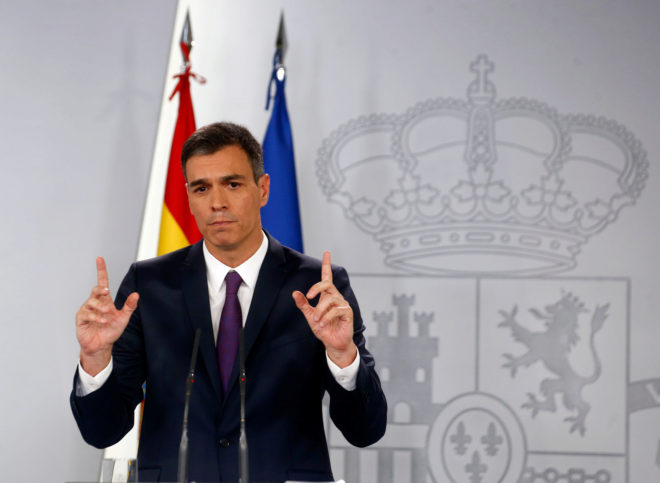Transfer now to the sector that your tax is not «imminent».

This was stated by the Minister of Finance, María Jesús Montero, who did not include this figure among those that must be carried out «as soon as possible», and so the president himself has now transferred it to banking entities, who according to financial sources it does not include it among its «imminent» objectives. The tax has received numerous criticisms from banking entities, and the CEO of Banco Santander, José Antonio Álvarez, managed to point, during the last presentation of results of the entity that, if this figure is finally created, the entity would modify its legal structure in Spain and asked, in case it would maintain the headquarters in the country, he limited himself to saying that «probably». The PNV has also pushed for the new tax to affect only the larger entities and not the medium ones, basically so that it does not have repercussions on Kutxabank and thus prevent the Basque bank from having to carry out an adjustment in the form of example, cuts of personnel. The nationalists were key for Sanchez to arrive at La Moncloa and in the same way they will be, when the processing of this tax figure takes place, for which his power of pressure is decisive. The banking employers, meanwhile, has also clearly shown against the tax and has not hesitated to say that it could have consequences on the health of the financial system. The president of the Spanish Banking Association (AEB), José María Roldán, defended last week in the pages of EL MUNDO that «the best tax that can be applied to banks is to ask them to strengthen their capital and solvency.» «Make him reserve more money so that when the problems come it is not necessary to resort to the taxpayer’s money. And so that when the bad times come, families and businesses do not run out of funding, just when they need it the most, «added Roldán. In this context, the Government has decided to postpone a figure that, explained the PSOE when it was in opposition, could help reduce the deficit of Social Security. The Executive maintains that it will carry it out and that it will create this tax in a second fiscal review, but the truth is that it does not have insured even the remaining two years of the legislature and it is not clear what supports it has for approve measures.Society, ‘Google rate’ and diesel Instead, it focuses on the actions that it considers priority: tighten the Corporation Tax, give shape to the so-called Google rate and increase the price of diesel to match, progressively, with the gasoline In the first case, the intention of the Treasury is to introduce a minimum rate of 15% and the objective is for large companies to contribute more in the form of taxes, since the Executive considers that they enjoy too many exemptions and deductions. With this modification, according to the alternative budgets presented by the socialist group in April, the State would collect up to 4,000 million euros. Regarding the so-called Google tax, the Executive wants to impose a tax on the large technology companies dedicated to the «sale of online advertising space, intermediation activities on digital platforms or the sale of data of its users». Here, in addition to Google, would also be included companies such as Facebook, Amazon or Airbnb. And on the environmental figure, the estimate is that it would have an impact of some 600 million, and the Executive always defends that it would not affect self-employed workers and that its purpose, rather than the collection, is dissuasive.